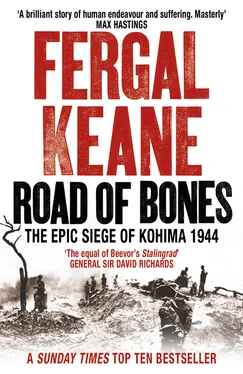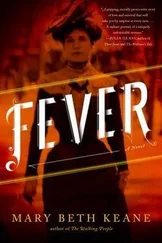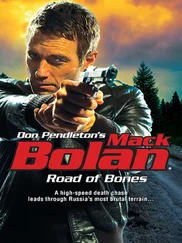The men marched in an orderly line along the beach until they were directed to a point where small boats would take them to a waiting ship. ‘We were like sheep … we had to stand there and hope for the best,’ recalled Ivan Daunt. On board, the decks were crowded with exhausted soldiers and their gear. Daunt eventually found a space where he, and the new silver cutlery service he had ‘liberated’ from an abandoned house, would be comfortable. Sadly for him, a sailor came and told the men to hand over any heavy material in their possession. Every last inch of space was needed and every ounce of excess weight had to go. His rifle and cutlery went over the side. The men on the decks could see the German aircraft screaming down to bomb the waiting ships. A hospital ship and a destroyer received direct hits while the 4th West Kents were waiting to sail.
Their first taste of war had been of defeat and chaos. Half of their comrades lay dead, dying, or on their way to German prison camps. But the rescue at Dunkirk had salvaged some self-respect. More than 300,000 men had been evacuated and the 4th West Kents shared in the pride of that achievement. Private Wally Jenner knew he would live to fight another day. On a personal level, he was proud he had managed to hold on to his rifle. It made him feel, as he put it, ‘like a proper soldier’.
On 31 May 1942, the 4th West Kents, supplemented with a fresh draft of troops to replace the dead and missing, boarded a train for Liverpool where the SS Laconia was waiting to ship them to the desert battlefields of North Africa. The officers were wedged five and six to a cabin, and more than 3,000 men were crammed on to the lower decks. There was a blackout in force at night to ensure that no enemy aircraft or U-boats could spot the ship’s lights twinkling in the darkness. The floors and walkways were awash with vomit, the air filled with the smell of sick and sweat, and all of it accompanied by the constant thrum of the engines and the groans of sick men. There were submarine alarms that produced a ‘nerve-wracking uncertainty’. * Because of U-boat activity in the Mediterranean, the Laconia was forced to take the long way round to Egypt, down the West African coast and up the other side. There was a stop at Freetown in Sierra Leone to take on supplies and from there the ship ploughed on to Cape Town, arriving on 1 July. Here there was a four-day stop for some shore leave, bars and girls for the men, lunches in the homes of respectable locals for the officers. It was here that the West Kents received the news that the British base at Tobruk in Libya had finally fallen to Rommel’s Afrika Korps, with 35,000 Allied troops marching into captivity.
One of the new officers was Lieutenant Donald Easten, from the leafy town of Chislehurst. Easten was an English countryman, the son of a solicitor, who lived for shooting and fishing whenever he found time away from his work as a clerk in the City of London. After Hitler invaded Czechoslovakia in 1938 a friend of his father’s had asked if he had joined the Territorial Army yet. ‘And when I said no he said: “Why the bloody hell aren’t you?”’ He joined up and was sent to the 4th West Kents in time for the journey east. On the long sea journey he thought often of his bride, Billie, who was serving with an anti-aircraft battery in London. ‘We were all bloody miserable … There was a grim silence. Everybody alone with their memories wondering, am I ever going to see her again?’
On 24 July 1942, nearly two months after they had set out from England, the 4th West Kents arrived in the Gulf of Suez and disembarked at Port Tewfik, where they prepared to join the allied counter-offensive against Rommel. The German general’s aim was to break through the allied defensive line stretching from El Alamein into the desert and open the way for an assault on Cairo, the last step needed to drive the allies out of North Africa. If he moved quickly enough, and if his enemy stumbled, there was a chance the Desert Fox could steal victory before the continuing build-up of British men and armour would make his task impossible.
The 4th West Kents spent a fortnight doing ‘toughening up marches’, without water, conducting mock attacks and practising night manoeuvres in the desert. The war diary for this period describes a battalion rapidly preparing itself for action, but the only incident of note was the death of a soldier who was accidentally shot.
One night Private Ivan Daunt was sitting with a few friends when he heard his name called out. An officer came over carrying a telegram from home. ‘I got down, put a sheet over my head and lit a match and it says: “A son is born.” I wouldn’t see him for another three years.’ In the desert night he felt a combination of joy and unspeakable sadness.
On 20 August a distinguished visitor arrived at 8th Army headquarters. The prime minister was on his way back from Moscow where he and President Roosevelt had met with Stalin, ‘the old Bear’, as Churchill described him to the welcoming party of officers. Now promoted to captain, Donald Easten was serving as a liaison officer between 132 Brigade, of which the 4th West Kents were part, and 8th Army headquarters. He suddenly found himself called upon to act as scout for the prime minister’s visit to front-line positions, a journey that would involve traversing a minefield. He practised the route several times in advance. ‘I was thinking I was going to meet the General and Churchill and two or three other people in vehicles. I found that I was leading something that looked like an armoured division! There were so many newspaper people, reporters and armoured cars and heaven knows what else.’ Easten led the convoy through the desert, found the gap, and made his way through to the other side. There he handed over to another officer and Churchill waved him goodbye with a shout of thanks. When he got back to the division headquarters he was immediately summoned and given ‘the most tremendous rocket’. He had apparently taken a fifty-yard detour off the safe route without knowing it. ‘However I didn’t blow the old man up,’ he recalled, still with an expression of considerable relief more than fifty years later.
Orders came down for the 4th West Kents to prepare to move off and mount an operation to interdict Rommel’s supply lines in the area of Alam Halfa. The troops moved out into the darkness at 2300 hours on 3 September, but German planes had spotted them forming up in the early evening and the sound of their vehicles was already attracting enemy mortar fire. Captain John Winstanley moved forward with B company on a ‘wonderful moonlight night’, but from the outset things went wrong. As the New Zealand official history describes it, the 4th West Kents ‘became considerably disorganised, with trucks on the wrong routes and often, in losing the way, becoming stuck in the soft sand or in the minefields … there was a confused mass of men and trucks’. Unbeknown to the battalion one of the few truly effective elements in the Italian army was waiting for them, holding fire in trenches that lay right across the line of advance.
The Folgore Division was an elite formation of paratroopers who could be depended on to stand and fight. As the advance eventually got under way, Winstanley heard the sound of men moving along on either side of him in silence. And then fury was unleashed. ‘The silence was shattered by a roar of automatic fire, and showers of Italian grenades burst among the forward companies. Many of the men were hit but the leading platoons charged the enemy positions.’ Enemy mortars crashed into the battalion’s vehicles and fires lit the sky, silhouetting the advancing men and making them an easier target for the machine-gunners. John Winstanley was firing his rifle lying flat on the ground when a bullet pierced his arm. He screamed in pain but maintained his position, urging his men to fight while trying to return fire himself.
Читать дальше












